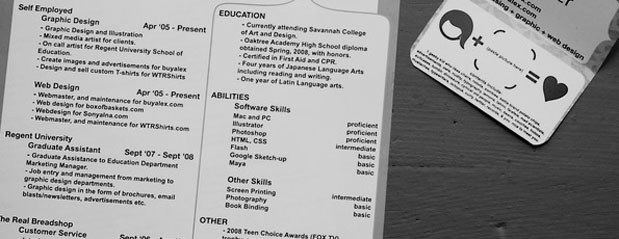10 tips on writing a standout CV as a recent IT and tech graduate

As a recent IT and tech graduate, writing a compelling CV is crucial so you can showcase your skills, education, and potential to prospective employers. Before submitting your CV you should always read through the job description and tailor the language, skills and experience in your CV so it reflects what the employer is looking for. Whilst it may seem time-consuming, it could be the difference between getting your dream job or not.
Beyond including your name and contact details, there are a number of other sections which you need to fill out in order to stand out from the crowd.
We’ve put together some tips to help you create an impactful graduate CV.
1. Start with a clear and concise objective statement
Begin your CV with a brief statement that highlights your career goals and aspirations. Tailor it to the specific role or industry you are targeting. Here are some examples below:
IT graduate statement looking to get into IT Support
"A driven and ambitious IT graduate who has a passion for technology and aspires to work towards a successful career in IT support. Eager to apply my technical knowledge, problem-solving skills, and exceptional customer service abilities to provide efficient and reliable support to end users. Looking for an entry-level job where I can help the company succeed while also learning and developing in a fast-paced IT setting.”
IT graduate statement looking to get into data analysis
“A detail-oriented and analytically driven IT graduate with a strong foundation in data analysis and a keen interest in leveraging data to drive business insights. Seeking an entry-level position in data analysis to apply my skills in data visualisation, statistical analysis, and data mining techniques. Committed to utilising my problem-solving abilities, and strong attention to detail to extract information from complex data, contributing towards data-driven decision-making.”
2. Highlight your education and technical skills
List your educational background, including your degree, university, and any other relevant qualifications as well as any projects you undertook during your study years. This is best to list in chronological order with your place of graduation at the top of the list. As a result of some of your studies you may wish to list any technical skills your potential employers have listed in their job advert, such as the programming languages you have learnt, software proficiency, databases, operating systems, and any certifications you have obtained in your spare time.
3. Showcase your projects and internships
Include a section that highlights the projects you have worked on during your studies or any internships you have completed. Describe the technologies used, your role, and the outcomes or impact of these projects.
4. Emphasise relevant experience
If you have any work experience, whether part-time jobs, internships, or freelance projects, highlight them in a dedicated section. Describe your responsibilities, accomplishments, and the skills you developed or applied.
5. Demonstrate problem-solving and analytical abilities
IT and tech roles require strong problem-solving skills. Include specific examples or achievements that display your ability to solve technical challenges, improve processes, or develop innovative solutions. This may include projects you worked on during university.
6. Highlight soft skills
While technical skills are important, don't overlook the value of soft skills. Include qualities such as teamwork, communication, adaptability, leadership, and critical thinking. Provide examples of how you have demonstrated these skills in academic or extracurricular activities. Even if the skills were not acquired in a technical environment, you should still include it as they may be transferable skills.
For example, in some IT Support jobs you will need to showcase your communications skills. Communications skills will most likely have been needed if you have ever had a part-time customer-facing job.
7. Quantify achievements
Wherever possible, quantify your achievements to provide concrete evidence of your impact. For example, mention the number of users impacted by a software project you contributed to or the percentage increase in efficiency achieved through system optimisation.
8. Tailor your CV to the job description
Customise your CV for each job application by aligning your skills and experiences with the requirements outlined in the job description. Highlight the most relevant information to make it easier for recruiters to see your fit for the role.
Did you know the average recruiter only looks at a CV for 6-8 seconds, therefore it is important you pick out the keywords provided by the employer.
9. Include professional affiliations and extracurricular activities
If you are a member of any professional organisations, mention them, as this would be a representation of your teamwork skills. If you have ever found yourself as a leader of one of these groups, be sure to include that as it demonstrates your leadership skills.
Additionally, include any relevant extracurricular activities, such as hackathons, coding competitions, or volunteering experiences that demonstrate your commitment and passion for the IT and tech field.
10. Proofread and format properly
Pay attention to grammar, spelling, and punctuation errors. Ensure that your CV is well-organised, easy to read, and uses a clean and professional format. Use bullet points, headings, and subheadings to improve readability. Make sure you get a friend or family member to read over, as an extra pair of eyes is always useful to spot anything you might have missed.
Remember, your CV should be concise, targeted, and tailored to highlight your skills, experiences, and achievements as a recent IT and tech graduate. Continuously update and refine your CV as you gain more experience and skills in the field. Good luck with your job search!
Find all our graduate jobs here
Head to our specialist graduate website, graduateitjobs.co.uk here




